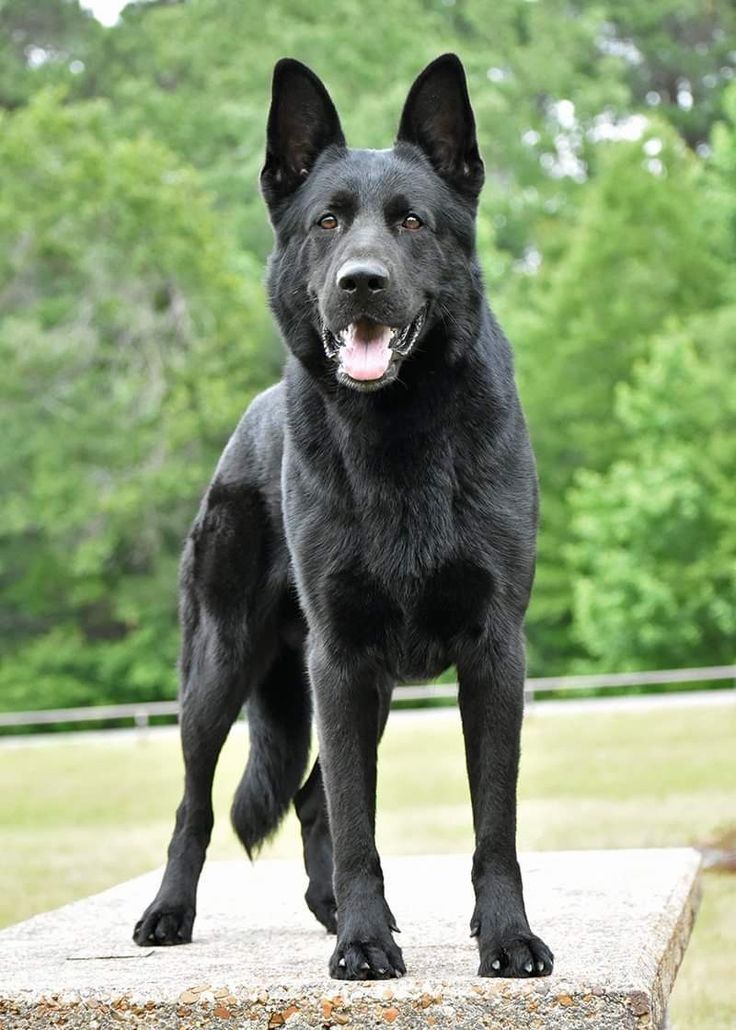The German Shepherd Dog (GSD) is one of the most popular and recognized dog breeds worldwide. Known for their intelligence, loyalty, and versatility, German Shepherds have earned a place in homes, law enforcement, the military, and as service animals. This article explores the history, characteristics, care needs, training tips, health concerns, and other essential aspects of owning a German Shepherd.

1. History and Origin of the German Shepherd
The German Shepherd breed was developed in the late 19th century in Germany by Captain Max von Stephanitz. His goal was to create the ideal herding dog with intelligence, strength, and a strong work ethic. The breed gained worldwide popularity during World War I when soldiers noticed the dog’s loyalty and capabilities.
Key Milestones:
- 1899: First German Shepherd Dog registered.
- 1913: German Shepherd Dog Club of America founded.
- WWI & WWII: Used extensively by military forces.
2. Physical Characteristics
German Shepherds are medium-to-large-sized dogs with a strong, muscular frame and alert expression. Their powerful build and agile movement make them excellent working dogs.
| Feature | Details |
|---|---|
| Size | Medium to Large |
| Height | Males: 24–26 in, Females: 22–24 in |
| Weight | Males: 65–90 lbs, Females: 50–70 lbs |
| Coat Type | Double coat (short/medium/long) |
| Colors | Black and tan, sable, all black |
| Life Expectancy | 9–13 years |
3. Temperament and Personality
German Shepherds are known for their confident, courageous, and intelligent personalities. They are highly trainable and thrive on mental and physical stimulation.
Traits:
- Loyal & Protective: Strong bond with family, excellent guard dogs.
- Intelligent & Obedient: Easily trainable for complex tasks.
- Energetic & Alert: Require regular exercise and engagement.
However, they can be wary of strangers and may become territorial if not properly socialized.
4. Training and Socialization
Training is essential for a well-adjusted German Shepherd. Begin training early to instill good behavior and social skills.
Training Tips:
- Start Early: Begin obedience training as early as 8 weeks.
- Use Positive Reinforcement: Treats, praise, and toys work best.
- Socialize Widely: Introduce to different people, animals, and settings.
- Teach Basic Commands: Sit, stay, come, heel, and leave it.
German Shepherds excel in obedience, agility, tracking, and protection sports.
5. Exercise Needs
German Shepherds are high-energy dogs that need plenty of physical and mental stimulation to prevent boredom and behavioral issues.
Exercise Guidelines:
- Daily Walks: At least 1–2 hours per day.
- Play Sessions: Games like fetch and tug-of-war.
- Training Drills: Mental exercises and trick training.
- Agility Courses: Great for exercise and bonding.
Lack of exercise can lead to destructive behaviors, anxiety, and obesity.
6. Diet and Nutrition
A balanced diet is crucial for a German Shepherd’s growth, energy, and longevity.
Nutritional Needs:
- High-Quality Protein: Supports muscle development.
- Healthy Fats: For energy and coat health.
- Calcium & Phosphorus: Crucial for bone health.
- Joint Supplements: Glucosamine and chondroitin are beneficial.
Feeding Guide by Age:
| Age | Meals per Day | Calories Needed |
|---|---|---|
| Puppy (8–12 weeks) | 3–4 | 1,200–1,500 kcal |
| Adolescent (4–12 months) | 2–3 | 1,500–2,000 kcal |
| Adult (1+ year) | 2 | 1,200–2,100 kcal |
Always provide clean, fresh water and consult a vet for specific dietary plans.
7. Grooming Requirements
German Shepherds have a double coat that sheds year-round, with heavy shedding in spring and fall.
Grooming Tips:
- Brushing: 2–3 times a week (daily during shedding season).
- Bathing: Every 6–8 weeks or when dirty.
- Nail Trimming: Monthly or as needed.
- Ear Cleaning: Weekly to prevent infections.
- Teeth Brushing: 2–3 times per week.
Invest in a good de-shedding tool and maintain a grooming routine to keep their coat healthy.
8. Common Health Issues
Like all breeds, German Shepherds are prone to certain genetic and lifestyle-related health problems.
Common Issues:
- Hip Dysplasia: Improper hip socket formation.
- Elbow Dysplasia: Joint malformation.
- Degenerative Myelopathy: Nerve condition affecting mobility.
- Allergies: Skin or food-related.
- Bloat (GDV): Life-threatening stomach issue.
Preventive Tips:
- Regular vet checkups
- Maintain a healthy weight
- Proper exercise and diet
- Genetic testing for breeding dogs
9. German Shepherds as Working Dogs
German Shepherds have been used in many professional roles:
- Police Dogs: Search and apprehension.
- Military Dogs: Detection and tracking.
- Service Animals: Assistance for the disabled.
- Search and Rescue: Disaster response teams.
- Therapy Dogs: Emotional support in hospitals and nursing homes.
Their intelligence, strength, and discipline make them ideal for challenging tasks.
10. Living with a German Shepherd
German Shepherds thrive in active homes where they receive consistent training and attention.
Ideal Living Conditions:
- Space: Prefer homes with yards, but can adapt to apartments with enough exercise.
- Time Commitment: Not suitable for absentee owners.
- Family Compatibility: Great with kids and other pets when socialized early.
They are best suited for experienced dog owners who understand their needs.
11. Cost of Owning a German Shepherd
Owning a German Shepherd can be rewarding but comes with ongoing expenses.
Estimated Annual Costs:
| Expense | Estimated Cost (USD) |
|---|---|
| Food | $500–$800 |
| Vet Visits | $300–$600 |
| Training | $200–$800 |
| Grooming Supplies | $100–$300 |
| Insurance | $200–$600 |
| Toys & Accessories | $100–$200 |
| Total | $1,400–$3,300 |
Be prepared for emergency medical expenses, especially in senior years.
12. Choosing a German Shepherd Puppy
If you’re ready to bring a German Shepherd into your life, choose a reputable breeder or consider adoption.
Tips for Choosing a Puppy:
- Visit the breeder or shelter
- Ask about health screenings and lineage
- Observe temperament and energy levels
- Ensure proper vaccination and socialization
Avoid puppy mills and backyard breeders that prioritize profit over health.
The German Shepherd is a loyal, intelligent, and hardworking breed that makes an excellent companion for active individuals and families. Whether you’re looking for a loving family pet or a skilled working partner, the German Shepherd delivers on all fronts. With the right care, training, and environment, they will reward you with years of devotion and companionship.
